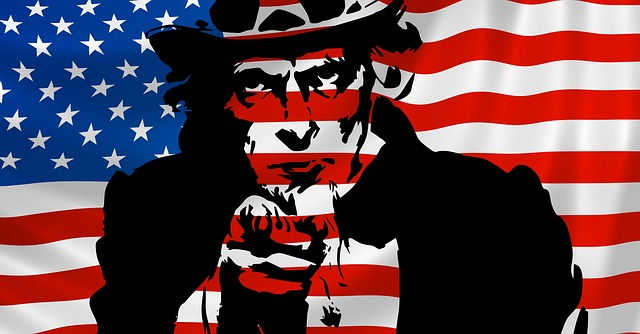The basic frameworks of mental operations shape the core values of society. The basic frameworks are objective, subjective, and normative. Every culture adapts its values, philosophy, and practices to accentuate one or the other frame of reference. The adoption of a “primary orientation” serves to bring coherence to cultural beliefs, attitudes, and actions.
America’s “Objective” Culture
The American orientation is primarily objective. Americans love objectivity and will defer to any objective evidence. Objective evidence is largely restricted to eyewitness observation and the experimental method associated with the sciences –eyewitness testimony is rapidly losing support as science seems to undermine faith in the reliability of memory.
People in America say something “has not been proven to be harmful.” If something is harmful, it must be demonstrated in a laboratory with clear agreement about what is defined as harm. Correlational studies do not rule-out other causes, so Americans are very wary of anything except double-blind studies. For this reason, Americans do about anything and claim “no studies have proven it harmful”. A way to sink any opponent’s argument is to accuse him of “subjectivism”, or worse, “moralistic thinking”.
Importance of Observable Characteristics
Contemporary American society places its highest value upon the self-interest of its members, where self-interest is largely defined by power and wealth. In America, power and wealth are objective. Americans do not think much of power and wealth in a metaphorical sense, such “The woman has a rich personality.” Americans equate power with control and control with money. Next in importance is position, and after that is politically correct opinion. Together these touchstones provide the basis for social appraisal.
Because knowledge and fashion change, America’s secular society continually reinvents itself. Continuous reinvention leads to an experience of no enduring ground for self-definition, except role or affiliation. In America, one is “a doctor, a lawyer, a Yankees fan, a Jets fan, a this or a that”, like the tee shirts that advertise goods and preferences. Status is sometimes proffered, but suspect because, like fashion, status changes and is only partially subject to personal control.
Empty or Contradictory Norms
In America, self-interest dominates, but takes various forms, such as the guise, “to make the world safe for democracy”, or other such formula. The appropriation of moral formula to justify actions that serve self-interest is no different from the habit of previous colonial powers that justified morally reprehensible policies by reference to God and to church.
The lack of an enduring ground, based upon change of knowledge and convention, results in an American character, different from that described by earlier chroniclers in important respects. The American character remains pragmatic, but uncommitted, and social, but unconnected. The American character is ready to change as new wind blows. This is not due to despotic regimes that require total obeisance, but rather to dictates of fashion, expertise, and new knowledge. For the new American is a consumer –and a consumer must remain empty to be filled, whether by facts, food, sports, entertainment, or travel. One senses, therefore, a peculiar lack of depth, substance, or presence in the contemporary American, and observes the consequences of America’s consumerism, pudgy bodies, mass-market garb, and predictable opinion. In spite of America’s wealth, its range of options decreases, as food, political party platforms, and style reflect focus group opinions.

Motivated Ignorance
American objectivism creates a kind of naiveté in matters of accountability. In recent wars, Americans have committed what some commentators would term war crimes and atrocities. Hundred of tons of “Agent Orange” during the Vietnam conflict were employed. Used as a defoliant to deny the Viet Cong the cover of trees, Agent Orange denuded vast areas of Viet Nam’s forest, killing trees and wildlife alike. The chemical contaminated ground water and entered the food supply. Three generations later, children suffer congenital malformations and genetic effects. American politicians would argue the negative effects were “unintended” to excuse moral culpability. We only want to kill trees, not create an environmental catastrophe. American politicians and military turned a blind eye to the known ecological and biological consequences of Agent Orange and never asked questions about it long-term effects.
In the Vietnamese conflict, American military employed saturation bombing of large areas of Vietnam to literally kill very living thing. Military planners laid a grid over Vietnam, and systematically, grid by grid, plummeted fields and villages by bombs from high flying B-52 bombers. Vietnamese were instructed to move to “safe” areas. Many natives could not move because they were under threat by the Viet Cong or would not leave their ancestral homes.
When civilians were targeted and were observed to be killed and the report was undeniable, any number of “objective” reasons were given for the “incident”. “Unfriendly fire was observed”, “civilians were unauthorized”, “hostile communications were monitored”, and on and on. Then as today, the deaths of civilians, women and children were rationalized as “collateral damage”, a term of objectification that denies reference to the humanity of those killed. What is striking is the absence of moral accountability and the subjective sense of accountability for anguish and pain. America denies and hides in its “objectivity”.
